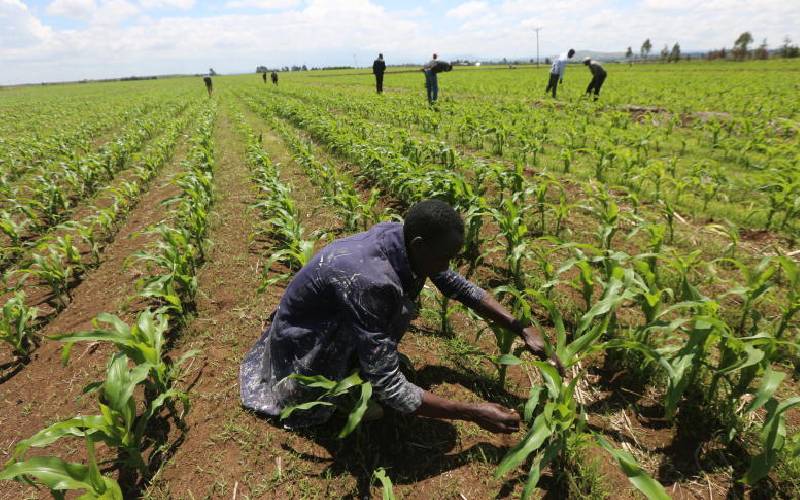×
The Standard e-Paper
Smart Minds Choose Us

Maize farmers in parts of the North Rift are staring at huge losses as destructive fall armyworms invade their farms. The pests are destroying maize plantations in parts of West Pokot, Uasin Gishu and Nandi Counties.
Farmers who spoke to The Standard fear losing their investment following high cost of inputs that saw planting fertiliser hit Sh6,000 for a 50kg bag in the current season.